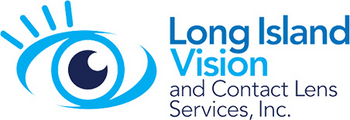Vision Therapy For Brain Injury
Contrary to what you might think, it is the brain, and not the eyes, that is the key to seeing well. Your vision is really the sum total of how your brain receives visual information and then interprets and processes that information to permit you to see. The accuracy of that process depends on a healthy brain correctly going about this processing.
There are many potential causes of brain injuries that can result in vision problems.
Our Neuro Optometrist Can Help With
- Concussion
- Stroke
- Traumatic Brain Injury (TBI)
- Mild Acquired Brain Injury
- Post-Concussion Syndrome also called (PCS)
- Cerebral Palsy
- Post Traumatic Vision Syndrome
- Hemianopsia or Hemianopia
- Mild Closed Head Injury
- Cervical Trauma Syndrome
A Brain Injury Or The Resulting Condition Such As The Ones Listed Above Can Result In Serious Vision Problems...
A brain injury or the resulting condition such as the ones listed above can result in serious vision problems, which can have a devastating effect on one's ability to complete basic day-to-day tasks. The damage can also be cumulative over time. Multiple concussions, even minor ones, can result in serious long-term complications. Our vision therapy practice in Huntington, Long Island specializes in Neuro-Optometric Rehabilitation ― a specific Vision Therapy program for those who have suffered a brain injury. Using series of custom and personalized exercises, the brain can be retrained to accurately receive, process, and interpret visual signals again. Research has shown that recovery from vision problems is essential to recovery from any brain injury.
Types Of Vision Problems Resulting From A Brain Injury
Brain Injuries Can Result In A Range Of Vision Problems
This includes:
- Diplopia (double-vision)
- Tracking issues
- Maintaining physical eye focus
- Difficulty staying mentally focused
- Strabismus (eye turns)
- Binocular Vision Dysfunctions (the ability to coordinate the two eyes to work together)
- Abnormal posture
- Head tilts or turns
- Bumping into objects
- Closing or covering one eye
- Balance and coordination problems
- Reduced ability to sustain attention on visual tasks
- Poor depth perception
- Confusion related to visual tasks
- Difficulty reading localized objects
- Reduced visual acuity at far (perceptual accuracy at a distance)
- Reduced visual acuity at near (perceptual accuracy up close for reading and other tasks)
- Accommodative Disorders (problems with focusing the eyes)
- Difficulties in visual perception (are objects where I think they are?)
- Visual Field loss (loss of vision in one or more areas)
- Deficits in visual motor (eye movement problems)
- Ocular Motility Disorders Integration (problems coordinating our eyes with our bodies )
- Problems with accurate visual information processing
Problems such as these can drastically affect day to day functioning even at the most basic levels. It’s only once such vision problems are addressed that the victim of a brain injury can get the most out of other treatments such as physical, occupational, and cognitive therapies.
Problems such as these can drastically affect day to day functioning even at the most basic levels. It’s only once such vision problems are addressed that the victim of a brain injury can get the most out of other treatments such as physical, occupational, and cognitive therapies.
